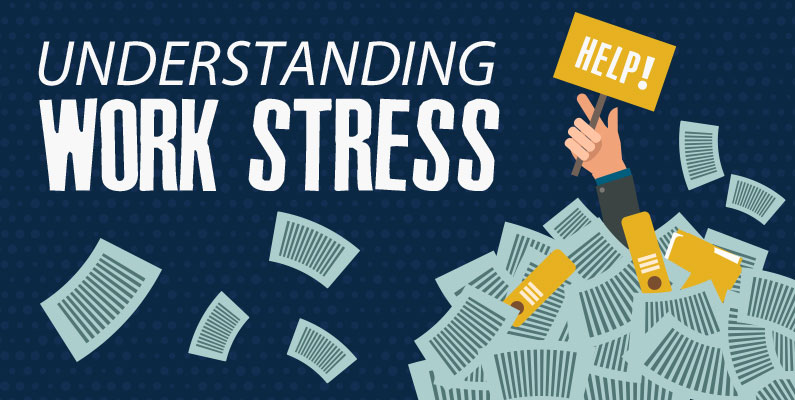Do you feel stressed at work? If so, you’re not alone. A recent study found that workplace stress is a major problem in the United States. In fact, it’s estimated that up to 90% of workers experience some level of stress on the job. This can lead to a number of problems, including decreased productivity, poor decision-making, and even health problems. In this blog post, we will discuss the causes of stress at work and offer some tips for how to deal with it.
Contents
- 1 What Is Stress?
- 2 Stress At Work
- 3 Signs of Stress At Work
- 4 Reasons For Stress At Work
- 4.1 Too Much Work
- 4.2 Poor Working Conditions
- 4.3 Unfair Treatment
- 4.4 Conflict With Coworkers
- 4.5 Lack of Recognition
- 4.6 Job Loss or Threat of Job Loss
- 4.7 Unreasonable Deadlines
- 4.8 Taking On Too Much Responsibility
- 4.9 Change In Role or Responsibility
- 4.10 Too Much Travel
- 4.11 Poor Relationship With Boss
- 4.12 Bullying or Harassment at Work
- 5 Negative Effects of Stress At Work
- 6 How To Treat Stress At Work?
- 7 How To Deal With Stress At Work?
- 8 Conclusion
- 9 A Word From Therapy Mantra
What Is Stress?
 Stress is a feeling that is caused by the demands of life. It can be triggered by events such as being late for work, traffic jams, or family problems. Stress also can build up gradually over time if you feel like you’re constantly running behind or are unable to meet all your obligations.
Stress is a feeling that is caused by the demands of life. It can be triggered by events such as being late for work, traffic jams, or family problems. Stress also can build up gradually over time if you feel like you’re constantly running behind or are unable to meet all your obligations.
The body’s response to stress is automatic and primordial. When you encounter something that threatens your well-being—whether it’s real or just an imagined danger—the brain sends out alarm signals. These signals set off a series of physical reactions that help prepare the body to deal with stressful situations. This so-called “fight or flight” response was originally lifesaving: It enabled our ancestors to confront dangerous predators or flee from them.
Stress At Work
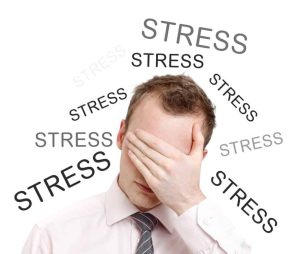 Stress can be at its worst when it’s combined with the other major stressor in most people’s lives: work. In fact, job stress is one of the leading causes of illness and absenteeism in the United States.
Stress can be at its worst when it’s combined with the other major stressor in most people’s lives: work. In fact, job stress is one of the leading causes of illness and absenteeism in the United States.
You may feel like you have no control over your work environment or how much work you have to do. This can lead to feelings of helplessness and frustration that make the stress even harder to deal with.
Signs of Stress At Work
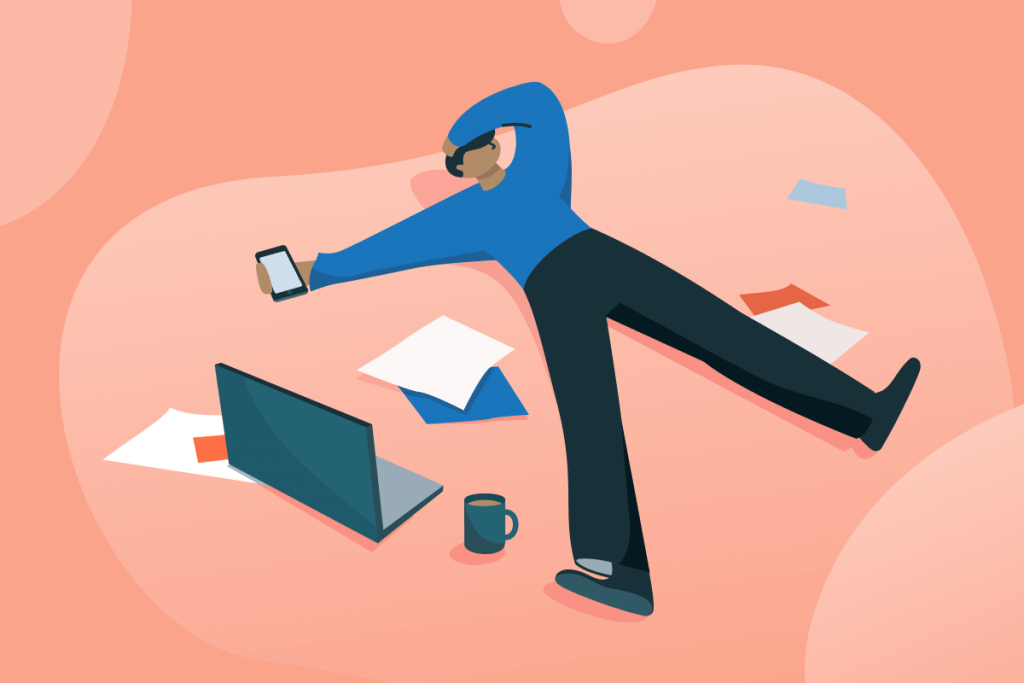
There can be many signs of stress at work. Some of these are:
Insomnia
Insomnia is the inability to sleep. It can be caused by stress at work, anxiety, or depression. People who have insomnia often feel tired and irritable during the day. This also can lead to problems with concentration and decision-making.
Headaches
People who are stressed often get tension headaches. These are caused by the tightening of muscles in the neck and scalp. The pain is usually a dull, throbbing sensation that starts at the back of the head and spreads to the temples.
Heartburn
Stress can cause heartburn by making stomach acids flow back up into the esophagus. This burning sensation in the chest is known as gastroesophageal reflux disease (GERD).
Muscle Tension
One sign of stress is muscle tension. This can be felt as tightness in the shoulders, neck, or back. People who are under stress often have trouble relaxing their muscles. Sometimes, this can lead to problems such as carpal tunnel syndrome.
Poor Digestion
Stress can interfere with the digestive process, causing constipation or diarrhea. It also can lead to a loss of appetite or overeating. Sometimes people eat unhealthy foods in an attempt to calm down.
Excessive Sweating
People who are stressed often sweat more than usual. This is because stress causes the body to release adrenalin, which makes the heart beat faster and raises blood pressure. Adrenalin also triggers the “fight or flight” response, which causes sweat glands to go into overdrive.
Irritability and Anger
When people are stressed, they may become irritable and short-tempered. They also may have trouble controlling their emotions. This can be very frustrating for them and for the people around them.
Memory Problems
People who are stressed often have trouble concentrating and remembering things. This is because stress can reduce the flow of blood to the brain. Sometimes, people under stress even forget their own names.
Depression
People who are stressed often become depressed. This is because stress can lower the level of serotonin in the brain, leading to feelings of sadness, hopelessness, and worthlessness. This also can increase the risk of suicide.
Reasons For Stress At Work
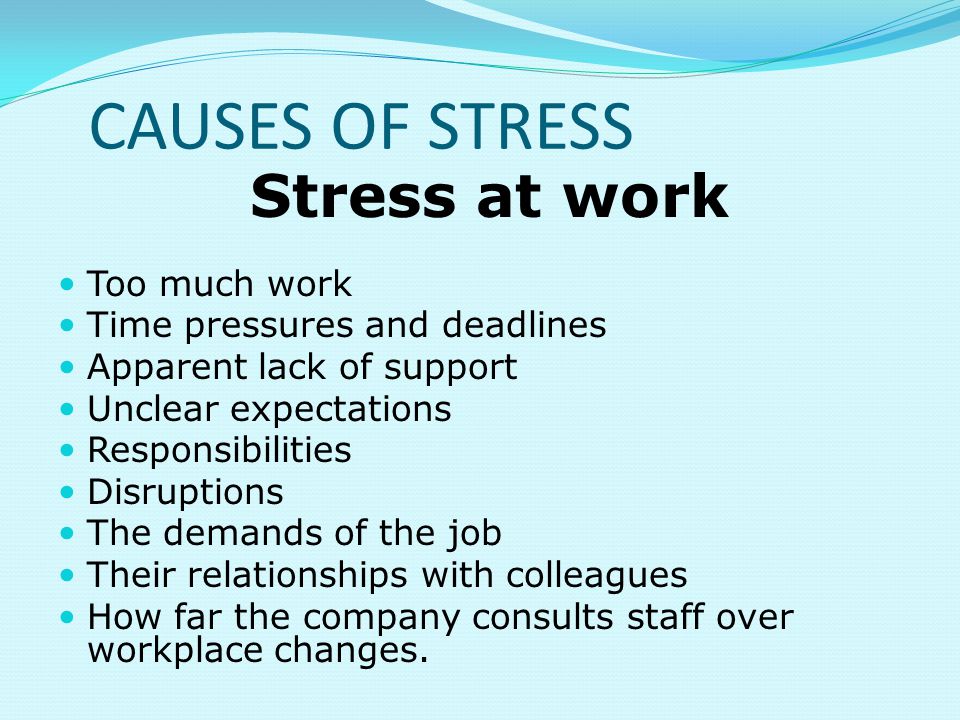
There can be many reasons for stress at work. Some of these are:
Too Much Work
When you have too much work, it can be hard to manage. You may feel like you’re constantly behind and that there’s never enough time to get everything done. This can lead to feelings of frustration and anxiety. This can also lead to poor work performance and job dissatisfaction.
Poor Working Conditions
If you’re working in a dirty, noisy, or dangerous environment, it can be stressful. You may feel like you’re not in control of your surroundings or that you’re putting your safety at risk. This can lead to feelings of fear and anxiety.
Unfair Treatment
If you feel like you’re being treated unfairly at work, it can be very stressful. You may feel like you have no power or voice in the workplace. This can lead to feelings of anger, frustration, and helplessness.
Conflict With Coworkers
If there is a conflict with coworkers, it can be one of the most stressful things about work. It’s often difficult to deal with the conflict and it can take up a lot of time and energy. This can lead to feelings of frustration, anger, and resentment.
Lack of Recognition
If you feel like you’re not being recognized for your work, it can be very stressful. You may feel like you’re not appreciated or that your efforts are going unnoticed. This can lead to feelings of sadness, anger, and frustration.
Job Loss or Threat of Job Loss
The threat of job loss is one of the most stressful things a person can experience. It’s often difficult to deal with the uncertainty and fear that comes with it. This can lead to a range of negative emotions, including anxiety, depression, and stress. This can also lead to problems such as insomnia and weight gain.
Unreasonable Deadlines
There are times when you are given deadlines that are just not possible to meet. This can lead to feelings of frustration, anger, and stress. You may feel like you’re being asked to do the impossible or that your employers don’t think you’re capable of doing your jobs.
Taking On Too Much Responsibility
Sometimes there are people who are given too much responsibility at work. This can be very stressful, as they may feel like they’re not able to handle everything. They may feel like they’re constantly under pressure and that they’re going to make a mistake.
Change In Role or Responsibility
If you are suddenly given a new role or responsibility at work, it can be very stressful. You may feel like you’re not ready for the challenge or that you don’t know what you’re doing. This can lead to feelings of anxiety and insecurity.
Too Much Travel
Traveling for work can be both tiring and stressful. It’s often difficult to adjust to the new surroundings and try to get work done when you’re constantly on the go. This can lead to feelings of fatigue and frustration.
Poor Relationship With Boss
If you have a poor relationship with your boss, it can be very stressful. You may feel like you’re constantly in conflict or that you don’t know what he/she wants from you. This can lead to feelings of anxiety, insecurity, and anger.
Bullying or Harassment at Work
Bullying or harassment at work is one of the most stressful things a person can experience. It can be difficult to deal with the emotional pain and humiliation that comes with it. This can lead to a variety of negative emotions, including stress, sadness, and anger.
Negative Effects of Stress At Work

There are many negative effects of stress at work. It can lead to problems such as :
Poor Work Performance
This effect is usually the result of one or more of the other stressors listed above. When you’re feeling overwhelmed and stressed, it’s hard to focus on your work and do your best. This can lead to poor productivity, mistakes, and even job loss.
Health Problems
Stress at work can often lead to health problems such as headaches, stomach aches, fatigue, insomnia, and weight gain/loss. These problems can often persist outside of work and affect all areas of your life.
Relationship Problems
When you’re stressed out from work, it often takes a toll on your relationships with friends and family members. You may be less available or less interested in spending time with them. You may also feel angry or resentful towards them for no apparent reason.
Depression and Anxiety
Stress at work can often lead to depression and anxiety. These conditions can affect your ability to do your job, as well as your personal life. They can also be very difficult to treat.
If you’re experiencing any of these problems, it’s important to seek help. There are many resources available to you, including therapy, medication, and self-help groups. Don’t try to deal with stress on your own- it’s too difficult and can often be harmful.
How To Treat Stress At Work?

There are many ways to treat stress at work. Some people may need medication, while others may benefit from therapy or self-help groups.
Medication
Medication may be necessary for some people who are struggling with stress at work. There are a variety of medications available that can help, including anti-anxiety drugs, antidepressants, and painkillers. This should only be used as a last resort, as there are many potential side effects.
Therapy
Therapy is a popular way to treat stress at work. It can help you identify the source of your stress and learn how to deal with it. There are a variety of therapies available, including cognitive-behavioral therapy, relaxation therapy, and mindfulness meditation.
Self-Help Groups
Self-help groups can be a great way to get support for dealing with stress at work. These groups allow you to share your experiences with others who understand what you’re going through. You can also learn helpful techniques from them. This is a good option for people who don’t want or need therapy.
How To Deal With Stress At Work?
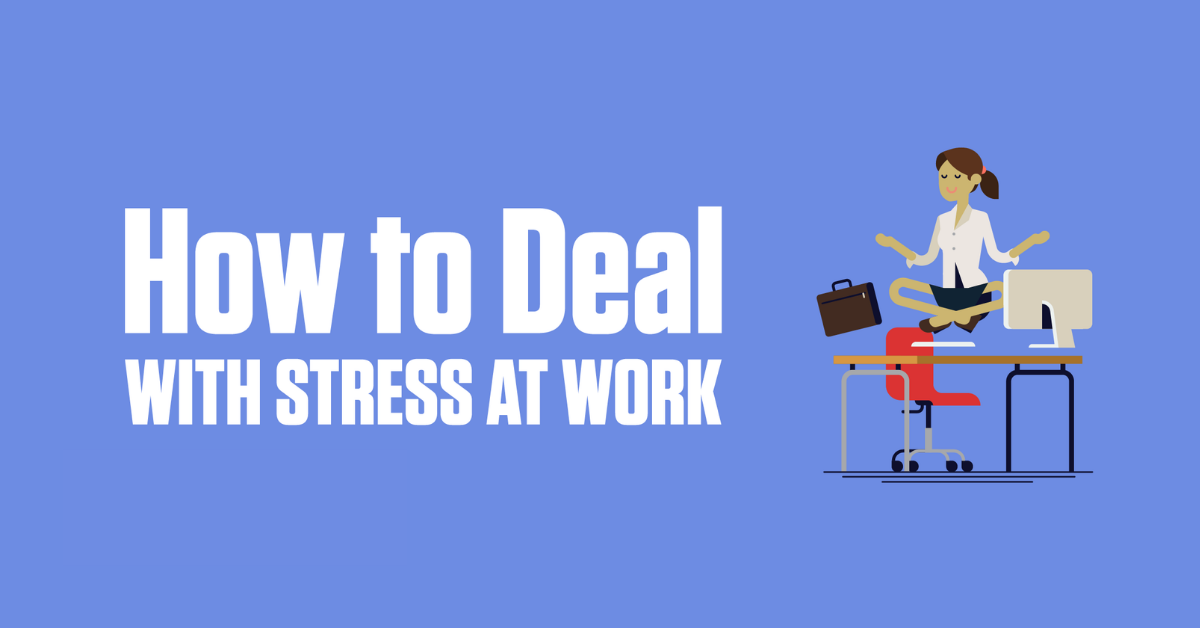
There are many ways to deal with stress at work. Some of these are:
Try to Take Breaks
When you’re feeling overwhelmed, it can be helpful to take a break. Step away from your work for a few minutes and do something relaxing, like reading or taking a walk. This will help clear your mind and make it easier to focus later.
Talk To Your Boss
If you’re struggling with stress at work, talk to your boss. Let him/her know what’s going on and see if there’s anything they can do to help. You may also want to ask for more guidance or support.
Identify The Source of Your Stress
It can be helpful to identify the source of your stress. Once you know what’s causing it, you can start working on ways to deal with it. This can be difficult, but it’s worth it in the end.
Take Care of Yourself
One of the best ways to deal with stress is to take care of yourself. This means getting enough sleep, eating healthy foods, and exercising regularly. It can also mean taking time for yourself each day to relax and destress.
Make Plan
When you’re feeling stressed, it can be helpful to make a plan. This will help you feel more in control and like you’re doing something about the situation. Come up with a list of things that help you relax and de-stress, such as reading, listening to music, or taking a walk.
Eliminate Interruptions
You can’t deal with stress if you’re constantly being interrupted. Eliminate unnecessary interruptions by turning off your phone and email, closing your door, or asking people to not disturb you. This will help you focus on dealing with your stress.
Eat Good Food
You can always improve your mood by eating good food. Make sure to include plenty of fruits, vegetables, and whole grains in your diet. These foods are packed with antioxidants and other nutrients that can help improve your mood.
Try To Sleep Good
You can’t deal with stress if you’re not getting enough sleep. Make sure to get at least seven hours of sleep each night. This will help your body recover from the day and prepare for the next one. This is especially important if you’re dealing with stress.
Try Relaxation Techniques
There are a variety of relaxation techniques that can help you deal with stress. These include deep breathing, visualization, and progressive muscle relaxation. Try out different techniques until you find one that works best for you. It may take some time to find the right one, but it’s worth it.
Conclusion
Stress is one of the most common problems people face in today’s world. It can often lead to depression and anxiety, which can be difficult to treat. There are a variety of resources available, including therapy, medication, and self-help groups. Don’t try to deal with stress on your own- it’s too difficult and can often be harmful. Stress at work can often lead to depression and anxiety. These conditions can affect your ability to do your job, as well as your personal life. They can also be very difficult to treat.
If you’re experiencing any of these problems, it’s important to seek help. There are many resources available to you, including therapy, medication, and self-help groups. Don’t try to deal with stress on your own- it’s too difficult and can often be harmful.
A Word From Therapy Mantra
Your mental health — Your psychological, emotional, and social well-being — has an impact on every aspect of your life. Positive mental health essentially allows you to effectively deal with life’s everyday challenges.
At TherapyMantra, we have a team of therapists who provide affordable online therapy to assist you with issues such as depression, anxiety, stress, workplace Issues, addiction, relationship, OCD, LGBTQ, and PTSD. You can book a free therapy or download our free Android or iOS app.
